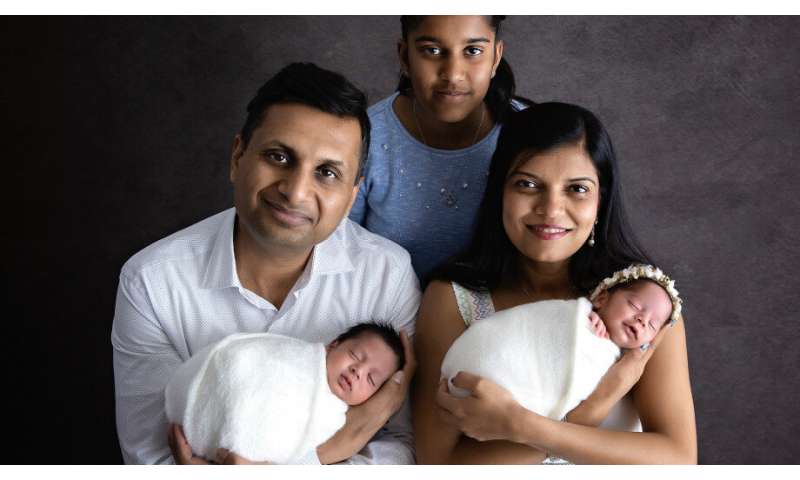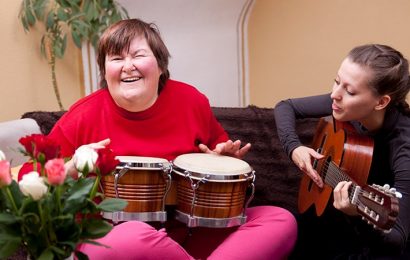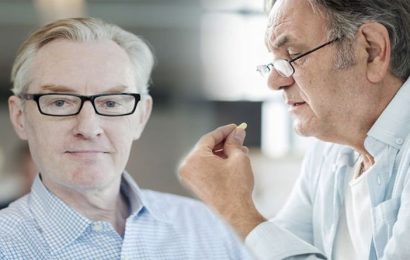
Almost seven in 10 pregnant women and new mothers (65%) in the ACT and southeast New South Wales say they were severely exposed to bushfire smoke in our recent summer.
Almost nine in 10 (85%) said they isolated themselves and their family at some point this year due to the COVID-19 pandemic.
These are early results of the Mother and Child 2020 (MC2020) survey being conducted by researchers from The Australian National University (ANU), University of Canberra and University of Wollongong, in partnership with Canberra Health Services and NSW Health.
The MC2020 study is examining the effects of this year’s bushfires and COVID-19 on the health and wellbeing of pregnant women and their babies. Mid-way through the survey, 750 women have participated.
The researchers are urging more women to enroll to increase the strength of the study findings. They are encouraging mothers from Aboriginal, Torres Strait Islander and multicultural communities to share their experiences.
The survey highlights the challenges women and their babies faced throughout the bushfires and pandemic as well as their adaptability and resilience in both the short and longer term.
Lead ANU researcher Professor Christopher Nolan said the results will be used to form a series of recommendations on how to improve our health system and emergency responses during major crises. “We need to listen to the experiences of these mothers and look at the challenges they faced during the bushfires and pandemic. Understanding these challenges is the only way we can look to improve these systems in the future,” Professor Nolan said. “We are very grateful for the women who have already joined the study.”
Ms Namita Mittal gave birth to twins during the lockdown and says that balancing looking after her newborn babies, helping her daughter do school from home and handling the pandemic without her family’s support caused her a great deal of anxiety. “None of my family could fly to visit me from India. Having a family member come to stay with you 24/7 to help with the babies is important to me and different from hiring help. There was extra work for me to do and not having that family support was the main thing that caused me anxiety,” Ms Mittal said.
“When my daughter was born my mum came, so I had no experience of how to handle everything myself. Recovering from a cesarean section with two newborns and one child doing school from home, I was really anxious having to do this without my mum.”
Dr Amita Bansal, from ANU, said mothers and babies have been disproportionately affected, and the long-term impact of bushfires, bushfire smoke and COVID-19 on the health of mothers and their babies is unknown.
“If a majority of women felt that exposure to smoke was severe, this may influence their stress levels. Isolation from COVID-19 most likely will add to this stress. Pregnancy itself is an overwhelming period for many women, and any additional stress can be detrimental for health of the mother and her child.”
Dr Bansal said it is important researchers get results that more accurately reflect the population to better prepare our emergency response and health care systems in the future.
“We want to hear the unheard, uncover the unknowns and best represent our diversity, so that we can better inform clinical practice and make policies that are more inclusive; inclusive of our women and children, and inclusive of our diverse perspectives and community,” she said.
“Through our study, we want to uncover if our multicultural community was indeed disproportionately impacted, so that we can improve our clinical practices and policies to reduce health disparities between ethnic groups.”
The survey is available to anyone who was pregnant or had a baby no older than three months on 1 February 2020 or became pregnant by 30 April 2020 in Canberra and Southeastern New South Wales.
The four-part survey asks mothers a series of questions about how the bushfires and pandemic impacted their pregnancy care, birthing and early months of having a new baby, including on their own mental and physical health, as well as the health of their baby.
Source: Read Full Article


